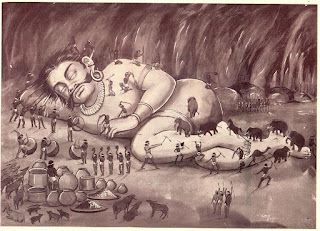Feedback Thought: Analysis
Image Details: Feedback, Source: Pixabay
In the article "Why rejection hurts so much — and what to do about it," the author explains that rejection is a concept that we fear and is a common emotional wound that we deal with in our lives. We are constantly surrounded by rejection through many common apps that we see in our daily lives such as social media, dating applications, and even texting. Furthermore, the article explains that we are vulnerable and susceptible to rejection and due to this we are hurt by it. I think this is fascinating that we are constantly surrounded by situations that have made us vulnerable to rejection.
The author brings up an important point that our brains are programmed in a way that when we are hurt by rejection then we feel the pain even more than it actually hurts. However, the damage caused by rejection is harmful to our behavior, mood, and self-esteem. The author suggests that we should stop criticizing ourselves and realize that rejection is not personal. Furthermore, we should realize our self-worth and our strengths.
This concept of rejection is also seen in the article "Why It’s So Hard to Hear Negative Feedback." In situations of distress, we tend to imagine the worst possible scenario as we fear negative criticism. In order to combat this feeling, the author explains that we should "trust that everyone is participating in good faith." I have experienced this feeling many times as I begin to prepare myself for the worst possible outcome. However, I find that when I do this I usually find myself much more calmer and feel better after the meeting is over as I feel I have more self-worth. I think that this is a way to protect myself from rejection and disappointment.
In the article "Why rejection hurts so much — and what to do about it," the author explains that rejection is a concept that we fear and is a common emotional wound that we deal with in our lives. We are constantly surrounded by rejection through many common apps that we see in our daily lives such as social media, dating applications, and even texting. Furthermore, the article explains that we are vulnerable and susceptible to rejection and due to this we are hurt by it. I think this is fascinating that we are constantly surrounded by situations that have made us vulnerable to rejection.
The author brings up an important point that our brains are programmed in a way that when we are hurt by rejection then we feel the pain even more than it actually hurts. However, the damage caused by rejection is harmful to our behavior, mood, and self-esteem. The author suggests that we should stop criticizing ourselves and realize that rejection is not personal. Furthermore, we should realize our self-worth and our strengths.
This concept of rejection is also seen in the article "Why It’s So Hard to Hear Negative Feedback." In situations of distress, we tend to imagine the worst possible scenario as we fear negative criticism. In order to combat this feeling, the author explains that we should "trust that everyone is participating in good faith." I have experienced this feeling many times as I begin to prepare myself for the worst possible outcome. However, I find that when I do this I usually find myself much more calmer and feel better after the meeting is over as I feel I have more self-worth. I think that this is a way to protect myself from rejection and disappointment.



Comments
Post a Comment